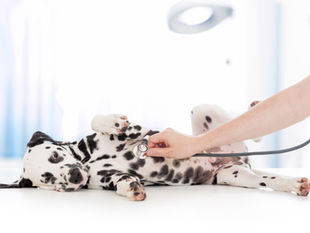
Fact vs. Fiction: All About Pet Microchipping
Sep 30, 2024
3 min read
0
3
0
In a world where every pet owner's worst nightmare is losing their beloved furry friend, the technology of pet microchipping stands as a beacon of hope. But with rumors and myths circulating about its safety, it's time to set the record straight. So, is pet microchipping safe? Let's dive into the facts and debunk the fiction once and for all.
The Origin of Pet Microchipping
The concept of pet microchipping might sound futuristic, but in reality, it's a simple yet ingenious solution. A tiny microchip, about the size of a grain of rice, is inserted under your pet's skin. This chip contains a unique identification number that can be scanned by special devices used by veterinarians and animal shelters around the world. This means that if your pet ever goes missing, their microchip can lead them back to you - their loving owner.
The Safety Concerns
One of the most common misconceptions surrounding pet microchipping is the safety of the procedure. Rest assured, dear pet owner, that the process is quick, virtually painless, and poses minimal risks to your furry companion. The microchipping process is similar to a routine vaccination - a small price to pay for the peace of mind it brings.

Debunking the Myths
Myth 1: Microchips Cause Health Issues
There is no scientific evidence to support the claim that microchips cause health problems in pets. The materials used in microchips are biocompatible and do not trigger adverse reactions in the animal's body. So, you can put those health concerns to rest.
Myth 2: Microchips Can Track Your Pet's Every Move
Contrary to popular belief, microchips are not GPS trackers. They only contain a passive identification number and cannot be used to monitor your pet's daily activities. Your pet's privacy remains intact!
The Benefits of Pet Microchipping
Aside from reuniting lost pets with their owners, microchipping offers a myriad of benefits that every responsible pet owner should consider:
Permanent Identification : Unlike collars or tags that can fall off, a microchip is a permanent form of identification.
Proof of Ownership : In case of disputes or theft, a microchip serves as irrefutable proof of ownership.
Global Recognition : Microchips are recognized worldwide, making them invaluable during travel or relocation.
Quick Reunions : Lost pets can be swiftly identified and returned home, saving precious time and worry.
Ensuring Safety and Accuracy
To ensure the safety and accuracy of your pet's microchip, follow these simple guidelines:
Update Contact Information : Keep your contact details current with the microchip registry.
Regular Checks : Ask your vet to scan the microchip during routine check-ups to confirm its functionality.
Ask Questions : If you have any concerns about your pet's microchip, don't hesitate to reach out to your veterinarian.
Final Verdict: Safety First
In conclusion, pet microchipping is a safe, efficient, and highly recommended practice for all pet owners. Don't fall prey to misinformation; safeguard your pet's future by opting for this invaluable technology. Remember, a microchip is not just a small device - it's a beacon of hope and a guardian of your furry friend's well-being.
So, the next time you hear someone question the safety of pet microchipping, you can confidently declare: "Fact checked and confirmed - pet microchipping is indeed safe!"
Let's ensure that our pets are always by our side, where they belong.






